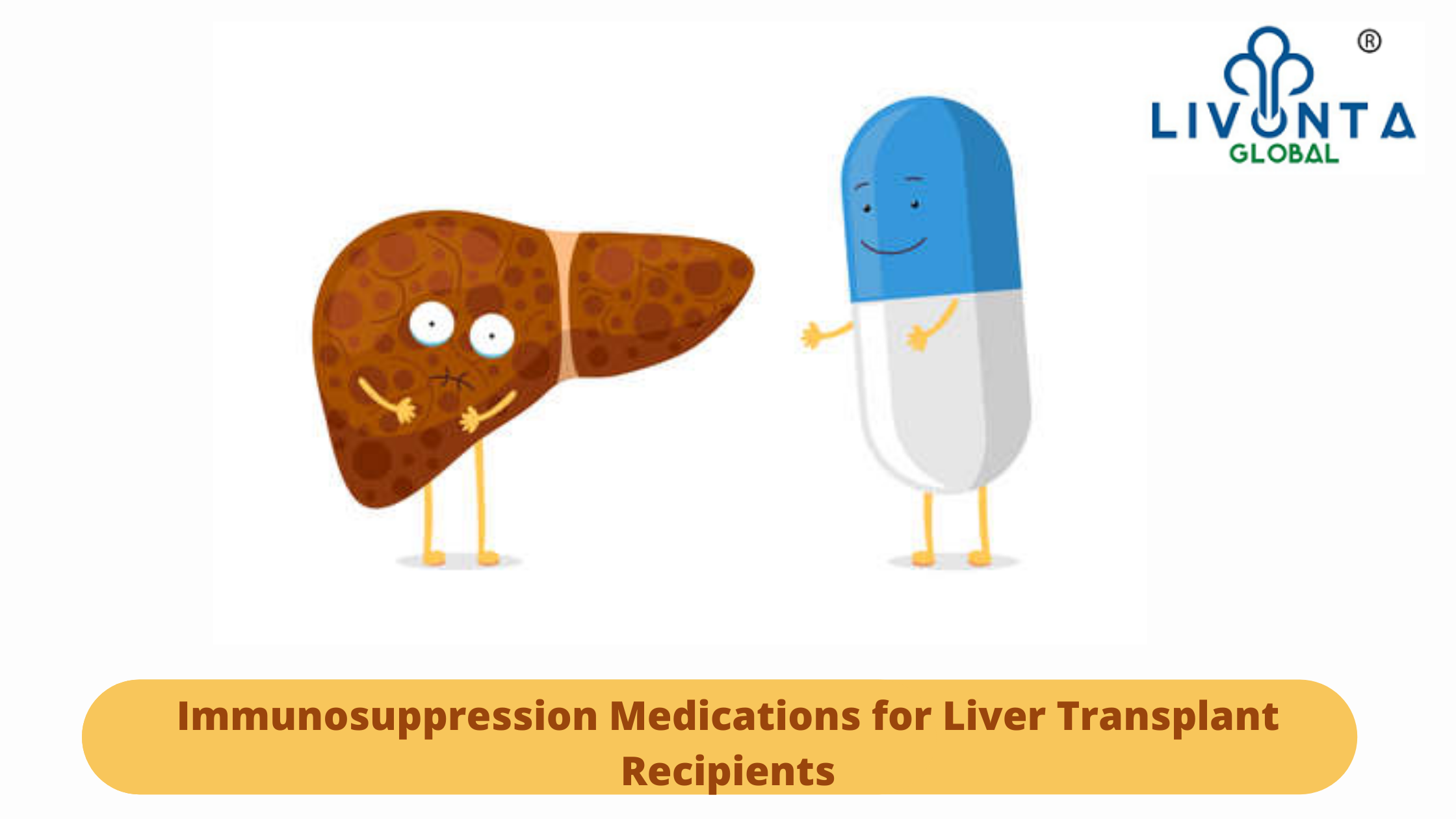
Immunosuppression Medications for Liver Transplant Recipients
Liver transplantation is the utmost procedure for patients who are suffering from end-stage liver disease and its complications, and for liver failure. Liver transplantation is also effective against some hereditary metabolic disorders like familial hypercholesterolemia and for selected cases of malignancies involving the liver. In liver transplant surgery, your diseased liver is replaced with a healthy liver from either a living donor or a deceased donor. Many reputed and the best liver hospitals in India are offering affordable liver transplants in India so that patients can get rid of their liver problems and resume normal activities.
If you are also planning for liver transplant surgeries in India, you must get in touch with Livonta Global as it is tied up with many popular and the best liver hospitals in India.
Recipients of liver transplants have an excellent survival rate (83% for 1 year and 75% for 5 years) that has improved drastically over the past three decades. The development of new agents and changes in post-transplant immunosuppression regimens are prime contributing factors for this improvement. However, long-term post-transplant immunosuppression decreases rejection episodes in liver transplant recipients and can also put the patients at increased risk of infection, malignancies and specific adverse side effects unique to each agent. Various hospitals and liver transplant centres use different immunosuppression protocols. A liver transplant patient may need an individually tailored immunosuppression treatment to balance the benefits and potential harm of therapy. Tailor-made immunosuppressive therapy may also lessen the risk of recurrence of their primary disease.
Liver transplant recipients usually receive lower levels of immunosuppression as compared to other solid organ transplant recipients. Even in some cases, for recipients, the allograft may achieve long-term survival even after immunosuppression withdrawal. Living donor liver transplant recipients experience fewer rejection episodes compared with deceased donors.
Immunosuppressive Agents for Liver Transplant
Immunosuppressive medications for liver transplants can be classified as induction and maintenance agents. Induction therapy is a short course of potent immunosuppressive agents that are applied just immediate post-transplant period. These medications are responsible for reducing the initial strong immune response of T lymphocytes against the transplanted liver. Induction medications are often initiated intra-operatively or immediately post-operatively. These medications are applied within the first 7–10 days of transplantation. Commonly used induction medications are polyclonal antibody preparation, Antithymocyte Globulin (ATG), and interleukin 2 (IL-2) receptor antagonist, Basiliximab.
Maintenance immunosuppression treatment comes with a combination of agents from different therapeutic classes, including calcineurin inhibitors (CNI), antiproliferative agents, mammalian target of rapamycin (mTOR) inhibitors, and corticosteroids. These medications are applied along with induction therapy or started after transplantation. These agents are used for longer terms to provide continuous prophylaxis against rejection.
Corticosteroids
This is the prime immunosuppression agent that was introduced since the first successful cases of solid organ transplantation. Intravenous injection of corticosteroid is given in high doses during the transplant operation. This injection is applied after transplantation for 3 days in combination with at least one other immunosuppressant agent. Corticosteroids may have adverse side effects. Delirium is a common early problem, and infections and metabolic derangements such as hypertension, hyperlipidaemia, diabetes, and obesity may cause significant short and long-term morbidity among liver recipients. So, the doctors are very careful about the doses of corticosteroids for liver transplant patients.
Antibodies
Antibodies are used to inhibit or deplete recipient T-cells that have been reported to decrease acute rejection episodes in the liver allograft. With antibody induction, you may experience less hyperglycemia and diabetes and fewer cytomegalovirus (CMV) infections as compared to corticosteroids. Antibodies used for induction of immunosuppression in liver transplants are classified into two groups; T-cell depleting (polyclonal and monoclonal) and non-depleting.
CNI
These immunosuppressants work by blocking signal 2 of T-cell activation by binding to specific receptors and blocking calcineurin within T-cells. The two CNIs [cyclosporine (in the 1970s and early 1980s) and tacrolimus (in the 1990s)] are commonly used as immunosuppressant agents. They improve the overall outcome of liver transplants. Overall survival of liver transplant patients on cyclosporine immunosuppressive therapy was 3 times higher than those on azathioprine alone.
Azathioprine
This is a purine synthase inhibitor and one of the first immunosuppressive agents used for organ transplantation. But with the introduction of more potent agents such as tacrolimus, the need for azathioprine was reduced. These days, azathioprine is not commonly used for liver transplants but may be helpful if you need to intensify immunosuppression.
These are common immunosuppressive medications that are used for liver transplant surgeries.
Livonta Global is a popular medical tourism company that is partnered with many well-known liver hospitals in India. Livonta Global will offer the best assistance and support to patients who are looking for affordable liver transplants in India.
You can send your query to Livonta Global or you can contact the company directly for the best liver transplants in India.
Liver Transplant TreatmentTags: best liver hospital in India, best liver transplant in India, Best Liver Transplant Treatment in India, Best Liver Treatment Hospitals in India

